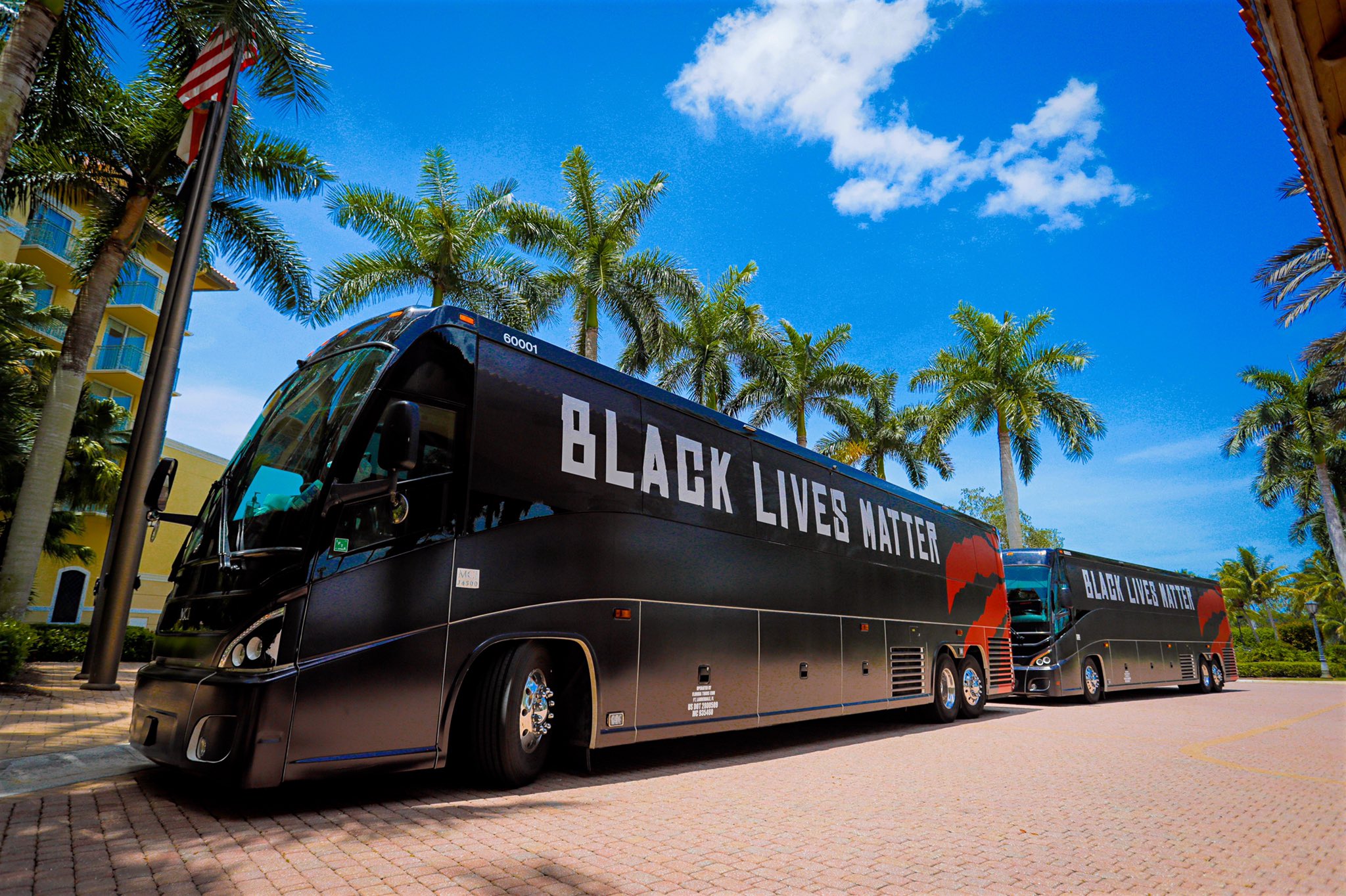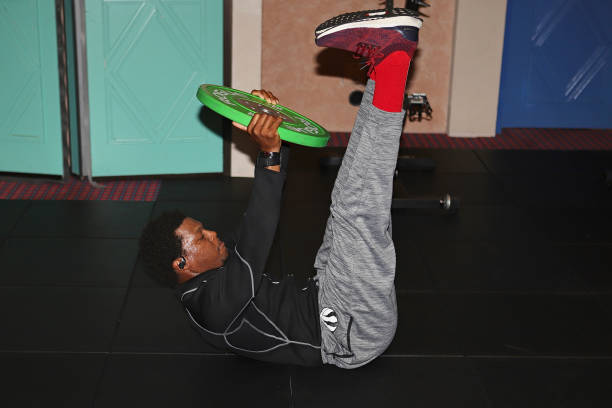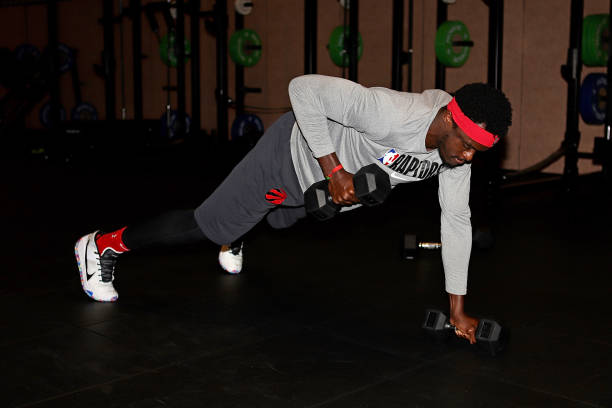Rabbi Abraham Isaac Kook once said “I don’t speak because I have the power to speak; I speak because I don’t have the power to remain silent.”
NBA players are starting to understand the extent and the limits of their own power.
NBA players have long been champions of their own communities. As political activism has entered a new stage of social diffusion, so too have NBA players entered a new stage of activism. Before basketball returned, and teams recalled their players, many NBA voices were integral in forwarding the causes of justice and social change. Raptors like Kyle Lowry, Malcolm Miller, and others attended protests. Other NBA players like Malcolm Brogdon and Jaylen Brown even participated in organizing protests. It became so important to NBA players that when Adam Silver spoke in June about the idea of a return to play taking place in a bubble, he framed it within the context of a further commitment to social justice. Ben Gulliver wrote in June for the Washington Post that the Orlando Bubble would only contribute to the cause for justice.
Silver sought to extend an olive branch to those weighing the protest issue, arguing, “The world’s attention will be on Orlando,” meaning the games would provide a greater stage for players seeking to enact change. The NBA could bring in speakers to address the issue with the players, he continued, and the concentration of players and media members at a single location could facilitate a collective and extended response.
So how are we to judge the first several weeks of that commitment? The Raptors have an organized and systemic approach. The team formed a series of sub-committees. Kyle Lowry, Fred VanVleet, and Marc Gasol are one on sub-committee that acts as a forum for ideas and actionable plans. There’s another sub-committee concerned with actionability that includes Bobby Webster, Masai Ujiri, Nick Nurse, Pat Mutumbo, Fab Flournoy, and Rae-Marie Rosant.
Out of that planning has emerged a series of efforts all pointing in a unified direction. The Toronto Raptors have made a variety of contributions to the cause of social justice. Ujiri wrote in an op-ed in the Globe and Mail in late May that all of us need to raise our voices to combat racism. The Raptors have been doing just that.
Toronto’s team bus, as they rolled into the Orlando bubble, was decorated with the slogan ‘Black Lives Matter.’ Terence Davis, like many other players around the league, in one media availability declined to discuss basketball in order to keep the conversation focused on arresting the murderers of Breonna Taylor: “Right now I want to keep the focus on what’s really going on in the world, the social injustice going on. I just want to make sure I’m doing the right thing and using my platform as well as I can. We’re all united. We might not be on the same team, but we’re still united in this league.”
The team released a public service announcement urging Americans living abroad to vote. Non-Americans like Oshae Brissett and Serge Ibaka have emphasized the internationalism of the protests and their importance. Players and coaches have worn ‘Black Lives Matter’ apparel during media conferences, while the team has used a backdrop with ‘Black Lives Matter’ written on it for those scrums. The team recently hired John Wiggins as Vice-President, Organizational Culture & Inclusion, and his mandate is actionable and positive change. The Raptors are forward-thinking, and the team is purposefully using the platforms available, whether through players’ popularity or owners’ wealth.
For one, the Raptors are aware that action is more important than image. It is for that reason that, though many Raptors disagree with the limited options the NBA has provided to replace names on the back of jerseys, they recognize that there are more important issues.
“I’m not losing sleep over putting something on my jersey,” said VanVleet. “I think there’s a lot bigger fish to fry and a lot more work to do. There’s real issues going on. Breonna Taylor’s killers are still walking around and living a very free life.”
It is not within VanVleet’s power, for example, to arrest or not arrest the police who murdered Breonna Taylor. The fact of the matter is that NBA players are not political leaders. They do not have the power to go to work and chip away at police brutality or systemic racism through legislative or other, broader means. No, more likely instead is that NBA players are the victims of police brutality or systemic racism. It has happened before. Class and wealth do not fully shield NBA players from the vulnerability inherent to being black in this society.
It is for that reason that Norman Powell said unprompted to assembled media on July 17 that if he could have chosen the message to put on the back of his jersey, he would have chosen ‘Am I Next?’
That would have been a powerful, relatable message if the NBA had allowed it. But, in keeping with VanVleet’s message that there are more important elements than names on jerseys, this is not all that Powell has pledged to do. He also pledged funds from his Understand the Grind brand, as well as his fashion lines, to contribute to charity. Powell is joining a long line of NBA players who have gone beyond the goal of spreading awareness to combat social issues. Jrue and Lauren Holiday have pledged the remainder of Holiday’s salary, projected to be $5.3 million, to found a social justice impact fund. Patty Mills has also pledged over $1 million to found a social justice impact fund. The Raptors are not alone; the NBA, collectively, is ensuring that a return to play does not mean players stop pushing towards the cause of social justice. It’s not a worthy comparison, but those funds will surely effect social change more than general awareness spread through the name on the back of a jersey. Again: action is more important than image.
Of course, the NBA returning to play is, by definition, a distraction from the issues of the day. That’s what the tertiary sector of the economy is: a distraction. A return to normality means a return to entertainment. And as players, media, and viewers return to the NBA, we necessarily drift away from protests and calls for social justice. There is only so much time in the day.
That is not the fault of NBA players. They are not professional protesters. They are professional athletes. And as they return to their jobs, so too do they return to their platforms and means of wealth-production. Trying to change society for the better is a war to be waged on multiple fronts, and it’s clear that the Raptors have identified where they can contribute. The Raptors plan to use their platform and their wealth, the sources of their power.
There is now more latent and realized power wielded by NBA players than ever before. Social media offers players a direct mouthpiece to legions of fans. Players like Lowry, Miller, Powell, VanVleet and others have used that power responsibly, offering resources to benefit their communities. As NBA players wield their power, so too do they realize the limits of that power. For the Toronto Raptors, silence is more costly than ever before.
They speak because they do not have the power to do otherwise.



